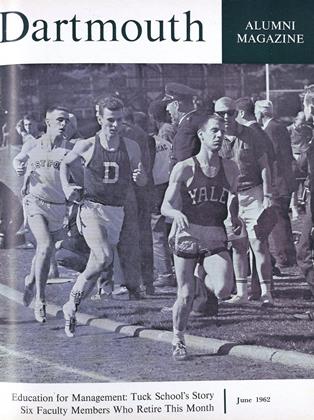By Robert H. Guest. Homewood, Illinois:Dorsey Press and Richard D. Irwin, 1962.180 pp. $6.00.
Robert Guest has written a research report in two major parts. First he presents a concrete and detailed chronicle of a sick industrial organization that became well. Then he uses theoretical insights, his own and those of other students of organizational behavior, to understand why the change took place and to raise new hypotheses about a variety of important phenomena.
As an on-the-spot observer, Mr. Guest first tells us about an automobile manufacturing plant in 1953. In terms of a number of specific corporate measurements Plant Y was the black sheep in the large family of its parent company. It ranked at the bottom on efficiency criteria and in terms of costs and waste. The author records the kinds of relationships and interactions among people that were both cause and product of this situation. He tells us how people felt, what they said, and how such factors as organizational structure and the very technology of the plant fitted in the complex system that was grinding toward disintegration.
In late 1953 a new plant manager was appointed, and the rest of Mr. Guest's clinical account follows Plant Y and its people through an exhilarating three-year period of rehabilitation and high success. By 1956 Plant Y had gone from bottom to top position in most measures of performance.
The sociologist, Robert Merton, wrote: "More is learned from a single success than from multiple failures. A single success proves it can be done. Therefore, it is necessary to learn what made it work." With this as his text, Mr. Guest uses the concepts and tools of organization theory to explain why Plant Y changed as it did. His diagnosis is one both students and inhabitants of organizations will find wise and realistic. The author seeks to explain and illuminate through first-order generalizations and insights, not by grand formulas. The result is an important contribution to a slowly-growing literature of organizational case studies and a significant addition to theory.
In larger scope, the present work is one of a series of studies Mr. Guest has conducted, first with the Technology Project at Yale University and now at The Amos Tuck School at Dartmouth. These have a common focus: the study of change in large organizations. The root question is why sociological, psychological, and technological factors combine as they do to produce the situations in which workers and managers live. Mr. Guest's approach is, in his word, systemic; and he has shown the effectiveness of this way of keeping in balance the various elements that earlier researchers have so often overemphasized. This new book is testimony to the validity of Mr. Guest's approach.
 View Full Issue
View Full Issue
More From This Issue
-
 Feature
FeatureDays of Controversy: 1816-1819
June 1962 -
 Feature
FeatureEducation for Management
June 1962 By CARLA A. SYKES -
 Feature
FeatureA College-Church Partnership
June 1962 By CLIFF JORDAN '45 -
 Feature
FeatureSix Faculty Members to Retire
June 1962 -
 Feature
FeaturePsychologists Discuss World Tensions in a Conference Dedicating Gerry Hall
June 1962 -
 Class Notes
Class Notes1931
June 1962 By WILLARD C.WOLFF, WILLIAM T. WENDELL
Books
-
 Books
BooksShelflife
Mar/Apr 2006 -
 Books
BooksWAR AND THE POET
January 1946 By Allan Macdonald -
 Books
BooksRAYMOND OF THE TIMES
October 1951 By Arthur M. Wilson -
 Books
BooksThe Start of It All
September 1975 By J.H. -
 Books
BooksTHE THREAD OF ARIADNE: THE LABRYINTH OF THE CALENDAR OF MINOS.
DECEMBER 1972 By JOHN B. STEARNS '16 -
 Books
BooksSELECTED LETTERS OF ROBERT FROST.
DECEMBER 1964 By STEARNS MORSE

